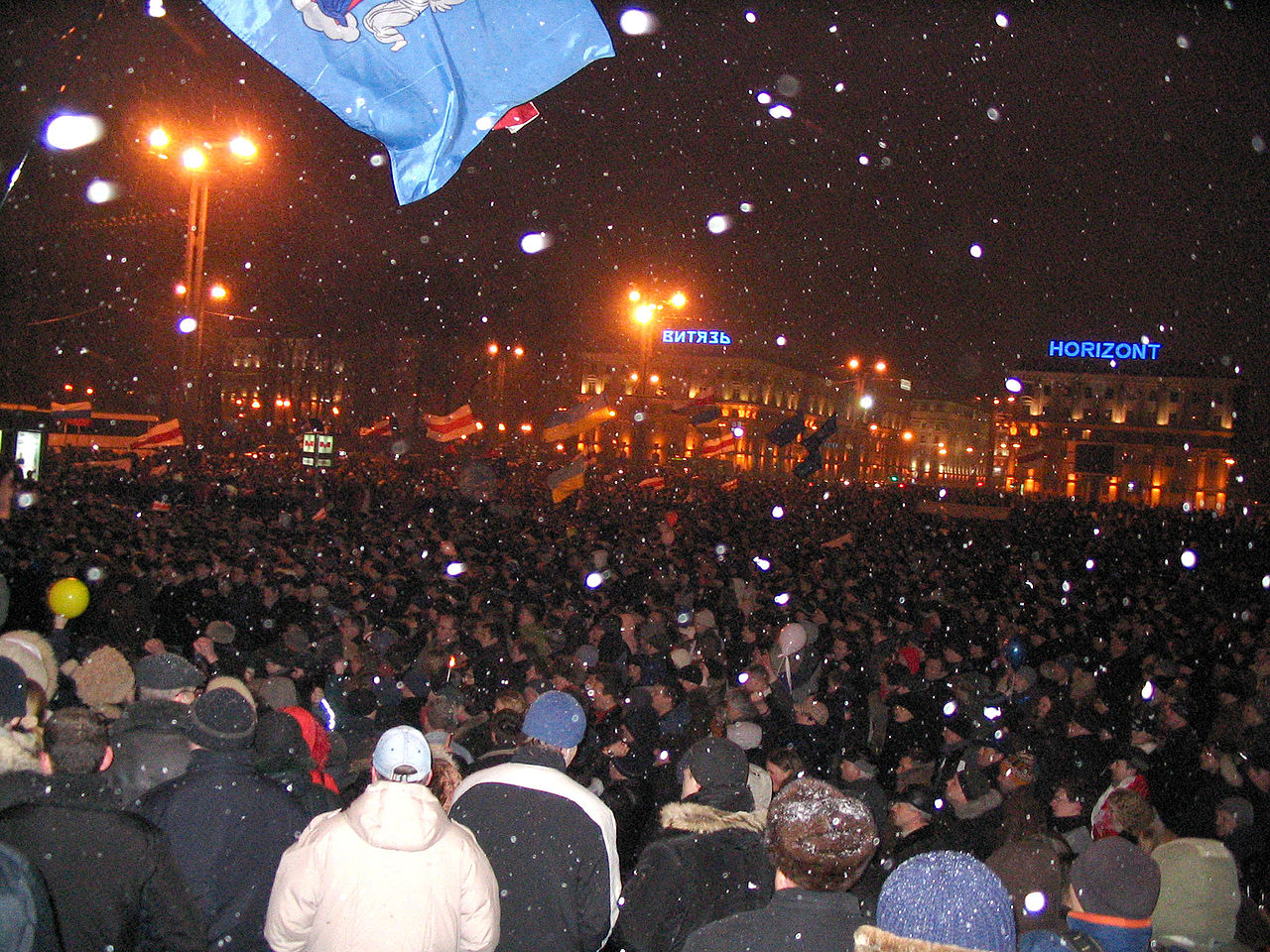In October, the migrant crisis exploded to a full scale. At the same time, the 64-year old politician Ryhor Kastusiou remains in prison with suspected cancer. He receives no medical aid. And in Europe, the regime continued using Interpol to pressure the dissidents abroad.
Finally, in November, the tensions at the Belarusian-Polish border reached a boiling point. Thousands of foreign citizens taken hostage by the regime have come to the focus of the EU. Phone calls have been exchanged to alleviate their conditions. But at the same time, nine million Belarusians remain hostages of the regime.
Have we forgotten the tragic lessons of our European past? That tyrants are emboldened by appeasement, not placated. That when you avoid confrontation with a bully, you only make the inevitable showdown that much more costly and dangerous.
But do you really suppose it will stop there? We are already seeing how dangerous a regime like this can be to its neighbors. Lithuania and Poland are facing the biggest test of their border security. By the way, Polska, Lietuva, stay strong! We know that you pay a big price for being true and principled friends to the People of Belarus.
Supposing this abuse of migrants is somehow stopped, do you really believe the regime’s threats beyond its borders will end there? Increases in the flow of smuggled drugs and other contraband? A military provocation? A disaster at a nuclear power plant right on the EU’s external borders? None of this is just my imagination. These are threats that the regime itself has made. Whatever it takes to get what it wants.
Meanwhile Europe hesitates, time goes by for those unjustly imprisoned, killed, or exiled. Time is measured differently for Belarusians. It’s measured in lost moments of happiness – moments that are the right of every one of us to experience. Moments that are the reason why all of us want to live in freedom and dignity.
Moments that Belarusians are deprived of.
For me, those would be moments when my daughter Agnia might see the loving face of her father Siarhei seeing her off on her first day of school. Moments when my son Karnei could feel the support of a father who helps him to fix his bicycle.
For other mothers like Dasha Losik, Volha Zalatar, Alena Bondarenka, time is measured in tears. When you don’t know if your husband is still alive. When you’re behind bars and you have no news about your 5 kids. When all is left of your child is a framed photograph with a black ribbon. Because they beat him to death when he asked them not to remove the white-red-white ribbons hung in his backyard.
For the workers in MTZ, Belkalii, Hrodna Azot, time is measured in sweat spilled while forced by the regime to work in unbearable and dangerous conditions. Conditions that are close to being slavery...Work with no rights.
For thousands of activists across the country, time is measured in units of stress and anxiety. Because even though they choose “safer” methods of resistance like distributing self-published newspapers, pasting stickers, joining independent labor movements, every day they risk arrest.
And for our medics from Voranava to Hotimsk, from Verhnedvinsk to Bragin, time is measured in hours of overtime and the minutes of sleep they are allowed. Because, due to the regime’s disregard of the pandemic, their workload has tripled.
Ladies and Gentlemen, do you think these people understand what we mean when we talk about the EU’s long bureaucratic processes and complex diplomacy? Do you think our statements of deep concern give them hope and confidence?
What can the European Union really say to the people of Belarus – to the forgotten Europeans – who want the same things the rest of Europe enjoys? Perhaps we have no right to demand your help or support. Perhaps you may refuse us because it may contradict your national interest. Or perhaps it’s bad for your businesses.
But I am here to ask for your support, nevertheless.
Our fight for freedom is your fight for freedom too. Only by standing together and acting decisively, does democracy have the chance to survive in this world.
Distinguished Representatives of Europe, pardon my straightforwardness, but I must say it: It is getting late! Since August 2020, there have been ample gestures and expressions of solidarity. Belarusians were praised for reigniting their faith in democracy and human dignity. Is it not the turn for Europeans to demonstrate their commitment to those values with action?
Will Europe as a whole have the courage to take decisive action now? Or will we wait another year? Dear ladies and gentlemen, we don’t have another year. Neither does Belarus. Neither does Europe.
There is more we can do than just wait and react. The regime in Minsk is motivated by fear of the Belarusian people. Hence, the escalation of violence. Meanwhile, Belarusians are not giving up. Three independent surveys show more than half of Belarusians want a new presidential election. Despite intense political pressure, Belarusians are still finding ways to protest. Maybe not in ways that get the attention of your media. But thousands have joined mobilization initiatives like “Victory plan” and “The Workers' Movement”. They are coordinating and preparing for new rallies and strikes when they are possible. Independent media and civil society groups have reorganized abroad and continue to work for Belarus.
I am proud of each of the brave Belarusians in our country and in our diaspora. It is they who will change our country for the better. New Belarus is not only about the future. It is already being born and growing. But today it needs your help.
We need Europe to be more proactive when facing autocracy. The cliche about Belarus being “the last dictatorship of Europe” is, in a way, misleading. Dictatorship does not have natural geographical limits. It spreads if it is not stopped. Dictatorships, after all, can be compared to a virus infecting the body. We all know that the more disease is ignored, the more difficult it is to treat it in the future. It’s now clear to the whole world that waiting and seeing is not the right strategy to address the virus. Action is crucial.
To successfully overcome a virus a three-part strategy can help. First, isolation to prevent its spread. Second, treatment to remove its negative effects. And last but not least, the immunity which allows keeping the body in good shape. The same strategies can be applied by Europe when dealing with the virus of dictatorship in Belarus.
|

